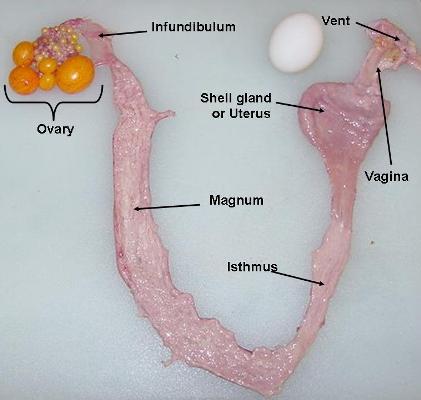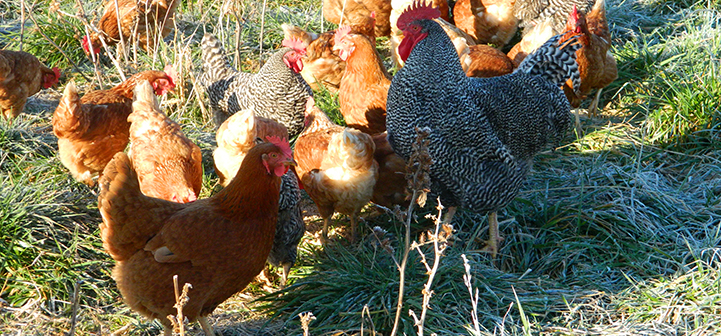Written by: Dr. Jacquie Jacob, University of Kentucky
There’s a lot that goes into the making of an egg! To understand exactly how an egg is made, we first need to know what its parts are.
Parts of an egg
Yolk. This is the most obvious part of the egg contents – the yellow part near the center
Albumen. This is the clear part we call the egg white. It’s called this because it turns white when cooked. There are two layers of albumen: Thick (near the yolk) and thin.
Chalaza. Located in the thick albumen, the two chalazae are simple albumen that is twisted tightly. It keeps the yolk in the middle of the egg and prevents it from sticking to the inside of the shell.
Shell membranes. The egg contests are surrounded by two thin membranes called the inner and outer shell membranes.
Shell. This is the outer covering of the egg holding everything together.
The eggs is formed in the reproductive tract of a female chicken, called a hen. The reproductive tract is divided into two major parts: the ovary and the oviduct.

The ovary is where the yolk is added to the follicle containing the female genetic material. When the yolk reaches the right size, it is released from the ovary by a process called ovulation. The released yolk is then picked up by the infundibulum. It is here that fertilization must take place. The yolk then passes to the magnum, where the albumen is added. It then goes on to the isthmus for the addition of the shell membranes. The developing egg spends most of its time in the shell gland, where the shell and an shell pigments are added. As the egg is being assembled, it travels down the oviduct small end first. In the vagina the egg is pushed out the large end first. This presents the egg from being contaminated by fecal material when it is laid.

